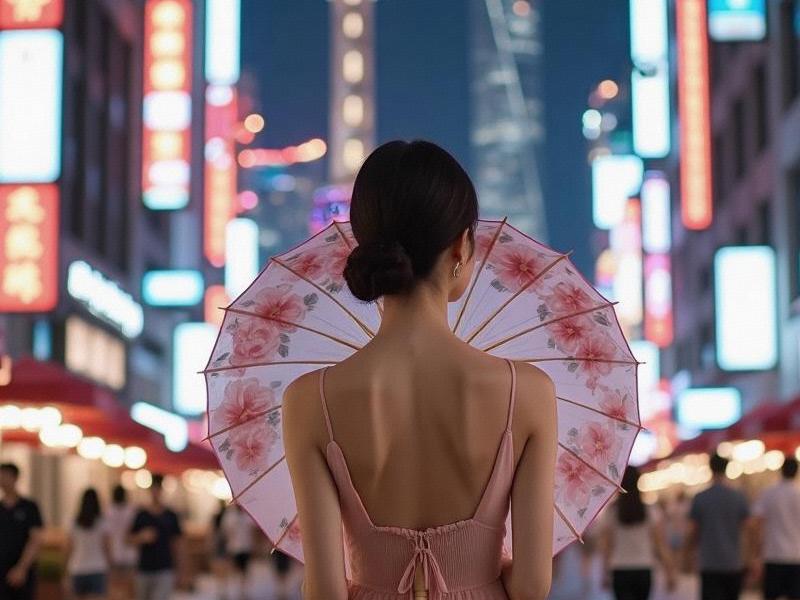This 2,800-word investigative feature examines how Shanghai's new generation of women are blending traditional Jiangnan aesthetics with global feminism, creating a unique urban femininity that's reshaping China's beauty standards and gender norms.

The rhythmic clack of Louboutin heels on the marble floors of K11 Art Mall signals a cultural shift - Shanghai's women are staging a quiet revolution through lipstick shades and legal briefs alike. In this city where East meets West since the 1840s, a new feminine ideal has emerged: the "Steel Magnolia," equally comfortable debating contractual clauses in flawless English as selecting the perfect xiaolongbao at Jianguo Road's wet market at dawn.
Shanghainese femininity has always been distinctive. The qipao (cheongsam) reached its sartorial zenith here in the 1920s, tailored to accentuate the educated "modern girl's" silhouette. Today's iterations appear in boardrooms - modified with jacket lapels by rising designer Xiao Wen, whose fusion pieces now outfit 37% of female executives in Pudong's financial district. "My clients want clothing that whispers tradition but shouts capability," explains Xiao during her atelier's Thursday feminist salons, where discussions range from Song Dynasty poetry to venture capital strategies.
爱上海同城419
Beauty standards tell a deeper story. While the "milk skin" ideal persists, dermatology clinics along Huaihai Road report surging demand for "Shanghai Glass Skin" - a dewy complexion achieved through high-tech treatments rather than heavy makeup. Dr. Li Jia's clinic alone performs 200 "dragon facial" procedures weekly, combining gua sha techniques with Swiss laser technology. "It's not about looking younger," notes Dr. Li, "but looking powerfully rested - like you've slept eight hours despite closing three international deals."
夜上海419论坛
The numbers reveal startling economic clout. Shanghai women drive 78% of household luxury purchases (McKinsey 2024 data) and launch businesses at 1.8 times the national female entrepreneurship rate. Platforms like Xiaohongshu buzz with "CEO makeup" tutorials featuring 32-year-old tech unicorn founder Amanda Zhao demonstrating five-minute "power face" routines between coding sessions. Meanwhile, the viral MyCheongsamMyTerms movement has repurposed the traditional dress as feminist armor - over 50,000 posts show women wearing qipaos while signing contracts, accepting awards, or protesting street harassment.
上海品茶网
Yet contradictions persist. Marriage markets in People's Park still display resumes listing "fair skin" and "youth" as key assets, even as Shanghai's average first marriage age climbs to 32.1 (municipal data 2025). The city's famed "nagging aunties" (阿姨) now spar with millennial granddaughters over whether freezing eggs constitutes female empowerment or surrender to patriarchal pressures. At Fudan University's gender studies department, Professor Wang Lixiong observes: "Shanghai women navigate multiple realities - they'll quote Simone de Beauvoir while still ensuring their fiancé's family receives proper bride price gifts."
As midnight descends on the Bund, the city's feminine duality becomes most visible. In restored Shikumen buildings, third-generation heiresses practice calligraphy with grandmothers who survived the Cultural Revolution by hiding jewelry in baby diapers. Across the river in Lujiazui, private equity analysts in Proenza Schouler blazers adjust their VR headsets for transcontinental mergers. All belong to Shanghai's ongoing feminine narrative - one being rewritten daily in conference rooms, art studios, and yes, even in the meticulous selection of a perfect jade bangle.